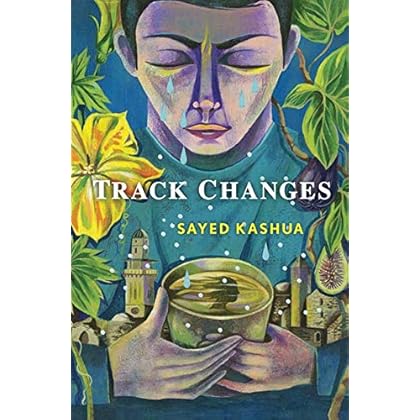Book Details Title: Track Changes | |
Book DescriptionReview Praise for Track ChangesMost Anticipated Books of the First-Half of 2020 by The Millions“A fierce and intelligent exploration of identity, class, relationship, and truth.” ―The Millions“Writing as a venting of frustration … writing as a corrective of a flawed reality … writing as a liberating impulse that inevitably offends some who read it ― all are in play in this mournfully shape-shifting novel, deftly translated by Mitch Ginsburg.”―Seattle TimesPraise for Second Person Singular“A master of subtle nuance in dealing with both Arab and Jewish society.”—New York Times“Part comedy of manners, part psychological mystery… Issues of nationalism, religion, and passing collide with quickly changing social and sexual mores.”—Boston Globe“Kashua keenly dissects issues of identity and class…The themes are universal.”—Los Angeles TimesPraise for Let it be Morning“Kashua goes beyond the front page headlines and horrific newspaper photos of Middle East violence to show a different view of what being an Arab is all about.”—San Francisco Chronicle“Sharp, powerful, and uncompromising… one of the most potent and impressive novels written in Hebrew in the last several years.”—Haaretz“Fascinating… Reading Kashua is a reminder of how little fiction from the Middle East we read and how welcome it would be to see more.”—Washington Times Read more About the Author SAYED KASHUA is the author of the novels Dancing Arabs, Let It Be Morning, which was shortlisted for the International IMPAC Dublin Literary Award, Second Person Singular, winner of the prestigious Bemstein Prize, and Native. He writes a weekly column for Haaretz and is the creator of the prize-winning sitcom Arab Labor. Now living in the United States with his family, he teaches at the University of Illinois. Read more Customers Review: Wow. This story really spoke to me, and although the main character is a Palestinian man, I could easily see myself in his story. The author’s masterful storytelling draws the reader in making them a participant in his story.But is it his story? We learn that the man, who remains nameless throughout the novel, is a writer who started his career as a journalist in Israel and wrote people’s memoirs on the side for extra cash. Shortly after he marries, his wife gets offered a position at a university in the U.S so they emigrate. He continues writing down other people’s memories in the U.S. but he begins to add his memories to theirs if he finds them lacking, or in need of a little something. Track changes-the edits he makes in memories to make them more pleasant.He returns to Israel to visit his dying father. Slowly we learn why he hasn’t visited his family in 14 years, why his marriage is disintegrating, and he and his father begin to mend their relationship and tell stories and share memories.There was so much here-who’s memories are who’s? Don’t we all try to forget the ugly and only remember the happy times? The man told the story about an herb that they would collect and his mother would bake into bread and how today, it doesn’t taste the same. Don’t we all have those memories? Nothing tastes as good as Mom’s or Grandma’s. I felt the man beginning to autonomy himself and his memories. In giving away his memories, had he collected some of theirs? Is that what we all do? Don’t we have memories that others close to us can’t remember?The other part of the story was the setting. The main character is a Palestinian man who grew up in Israel. He speaks Hebrew, he works for an Israeli newspaper. The juxtaposition of these 2 cultures clashing within him, and then he moves to the US where things seem simpler because he can just forget Israel and Palestine and everything happening over there and be himself, but then things get complicated over here and aren’t what they seem.Overall a fantastic novel that made me look inward. I can’t wait to read more from Mr. Kashua.Thank you to Netgalley and Grove Atlantic for an ARC of this book.
| |

